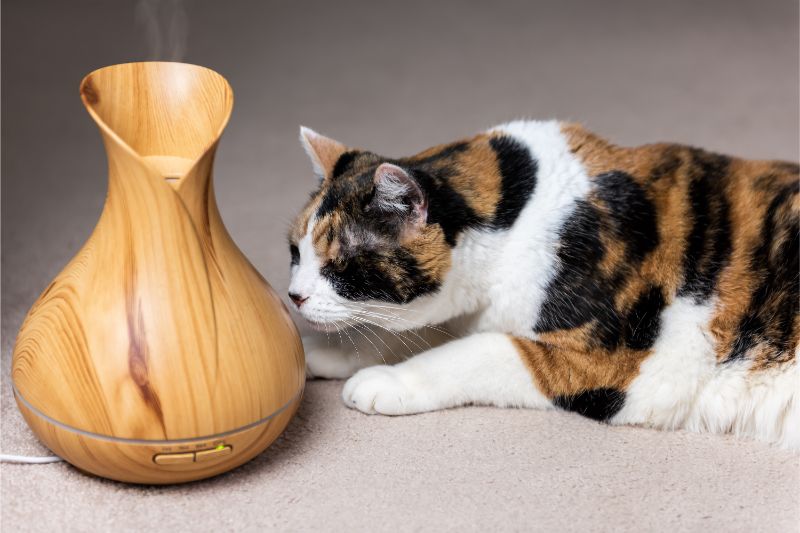
Humankind have used medicinal plants for thousands of years. The leaves, bark, roots, seeds, fruits, and flowers of various plants have different active ingredients (one part of the same plant could be safe, others toxic). Extracted from plants, essential oils are considered volatile.
Essential oils also have a long history. While more research is being done to understand the effects of these powerful products on people, the combination of pets and essential oils may be risky.
A Look at the Label
You’ve probably seen essential oil diffusers adjacent to rows or small bottles of oils. These are the highly concentrated and incredibly aromatic compounds extracted from different plants. Labels and accompanying materials advertise how these remedies, when inhaled or applied directly to the skin, can minimize symptoms of the common cold, anxiety, and even pain.
Essential oils are also included in natural or organic cleaning and personal care products.
Plant Safety
There are many toxic plants that pose significant risks to pets that sniff or eat them. In the same way that pet owners must be cautious about what’s growing in the gardens, pets and essential oils should be given a similar buffer.
Essential oils that are inhaled, ingested, or absorbed through your pet’s skin can not only be toxic for them, but they can simply cause irritation or allergic reactions, too.
To preventing a pet poisoning from exposure to essential oils, we recommend that oil diffusers (oils mixed with water vapor), liquid potpourri products, reed diffusers, air fresheners, and room sprays be kept out of rooms that pets frequent, or out of the house entirely.
A Wide Berth
Pets and essential oils like the ones listed below should not cross paths:
Tea tree
Citrus
Clove
Pine
Eucalyptus
Rosemary
Cinnamon
Peppermint
Oregano
Wintergreen
Pennyroyal
Watch for Signs
Animals are more sensitive to scents than we are. We may be calmed or motivated by certain smells, but pets can easily become overwhelmed by exposure. Please be mindful of repetitive sneezing, coughing, squinting, drooling, and other obvious signs of your pet’s discomfort or irritation.
Respiratory distress is a concerning aspect of pets and essential oils, especially for those with a history of breathing difficulties. Laborious breathing, sudden panting without exertion, or wheezing signal the need for immediate veterinary intervention.
Pets and Essential Oils
Essential oils that are airborne are easily inhaled, but they can also land on your pet’s fur and skin. If licked off and ingested, adverse effects can include gastrointestinal distress, depression of the central nervous system, or even liver damage if consumed in large quantities.
If you ever see the following symptoms, please contact us:
Vomiting
Diarrhea
Lethargy
Low heart rate
Low blood pressure
Tremors
Unbalanced or unsteady gait
Seizures
When it comes to pets and essential oils, we recommend exercising caution. As always, please let our staff at The Pet’s Place Animal Hospital know if you have any questions or concerns.










